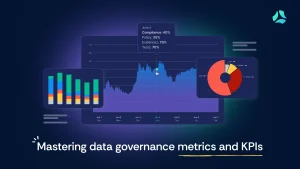
Let’s be honest: managing an accounting team remotely isn’t just about crunching numbers. It’s about trust, clarity, and—let’s face it—avoiding spreadsheet chaos. Whether you’re transitioning to remote work or fine-tuning your existing setup, these best practices will help you steer your team like a well-balanced ledger.
1. Communication: The Lifeline of Remote Accounting
Without watercooler chats or desk drop-ins, communication gaps can turn into financial blind spots. Here’s how to keep the conversation flowing:
- Daily check-ins: A 10-minute standup (yes, even virtually) to align priorities. Think of it as a financial pulse check.
- Async updates: Tools like Slack or Microsoft Teams for quick questions—without the meeting overload.
- Clear documentation: Centralize processes in Notion or Confluence. No more “Where’s that invoice template?” chaos.
2. Tools That Don’t Make You Want to Tear Your Hair Out
You know the drill: the right tools can turn a messy workflow into a well-oiled machine. Here’s what remote accounting teams swear by:
| Tool Type | Top Picks |
| Accounting Software | QuickBooks Online, Xero, FreshBooks |
| Collaboration | Slack, Microsoft Teams, ClickUp |
| Document Sharing | Google Drive, Dropbox, ShareFile |
| Security | LastPass, VPNs, Two-Factor Auth |
Pro tip: Don’t drown in subscriptions. Pick tools that integrate seamlessly—like Xero with HubSpot for invoicing automation.
3. Trust, But Verify (Without Micromanaging)
Remote work thrives on trust, but accounting? Well, it demands accuracy. Balance the two with:
- Transparent deadlines: Use Trello or Asana to track tasks. Green means go; red means “Why’s this report late?”
- Audit trails: Cloud-based software logs changes. No more “Who edited the Q3 numbers?” mysteries.
- Regular reviews: Weekly syncs to spot discrepancies early. Think of it as preventive care for your finances.
4. Security: Because Data Breaches Aren’t a Tax Deduction
Remote accounting teams are gold mines for hackers. Lock things down with:
- Encrypted everything: From emails (ProtonMail) to file transfers (ShareFile).
- Role-based access: Junior staff shouldn’t have CFO-level permissions. Period.
- Training: Phishing scams love untrained teams. Run mock drills—yes, really.
The Human Firewall
Your team is your first line of defense. Teach them to spot shady links like they’d spot a misplaced decimal.
5. Culture: Remote Doesn’t Mean Robotic
Spreadsheets are cold. Your team shouldn’t be. Foster connection with:
- Virtual coffee breaks: No shop talk. Just memes and pet cameos.
- Recognition: Shout out wins in team chats. A little “You nailed that audit!” goes far.
- Flexibility: Time zones exist. Let early birds and night owls work their magic.
6. Metrics That Actually Matter
Forget vanity metrics. Track what keeps your remote accounting team humming:
- Close rate: How fast month-end closes happen. Aim for faster, not frantic.
- Error rates: Fewer mistakes mean smoother audits.
- Team morale: Anonymous pulse surveys. Unhappy teams = messy books.
Wrapping Up: Remote Accounting as a Force Multiplier
Done right, remote accounting teams aren’t just efficient—they’re resilient. Less commute stress, more focused work, and honestly, happier accountants. The key? Tools + trust + a dash of humanity. Now go forth and reconcile… efficiently.






